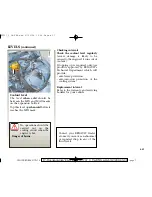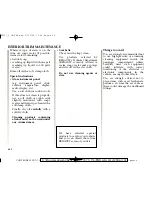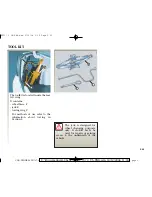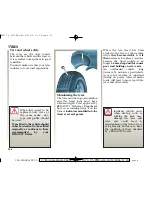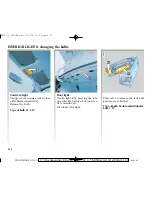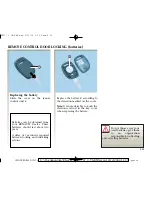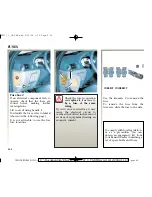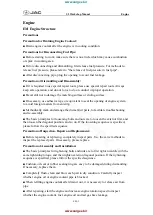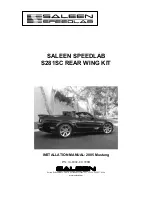
NU737_3_G5-FRA.qxd 2/11/04 9:15 Page 5.07
CLIO-TRICORPS NU737-3
C:\Documentum\Checkout\NU737_3_T5-ENG.win 14/12/2004 11:39
- page 7
5.07
TYRES
(continued)
Tyre pressures
It is important to respect inflation
pressure (including that of the spare
wheel), it must be checked at least
once a month and also before each
long journey (refer to the Section on
tyre
inflation
pressure
at
the
beginning of the handbook).
Incorrect tyre pressures
lead to abnormal tyre
wear and unusually hot
running, factors which
may seriously affect safety and
lead to:
- poor road holding,
- the risk of blow-outs or of
throwing a tread at high speed.
Tyre pressures depend on the
load and the driving speed.
Adjust the pressures according
to the conditions of use. (Refer to
the tyre pressures section.)
Pressures should be checked when
the tyres are cold; ignore higher
pressures which may be reached in
warm weather or following a fast
journey.
If tyre pressures cannot be checked
when the tyres are
cold
, assume an
increase of
0.2
to
0.3
bar.
Never deflate a hot tyre.
Note:
a label (depending on country
or model) fixed to the edge or frame
of the driver's door gives the
recommended tyre pressures.
Changing wheels around
This practice is not recommended.
Emergency spare wheel
Refer to the information on the
emergency
spare
wheel
and
instructions on how to change a
wheel in Section 5.
Fitting new tyres
For safety reasons, this
operation
must
be
carried
out
by
a
specialist.
Fitting
different
tyres
may
change your vehicle as follows:
- It may mean that your vehicle
no longer conforms to current
regulations.
- It may change the way it
handles when cornering.
- It may cause the steering to be
heavy.
- It may cause tyre noise.
- It may affect the use of snow
chains.



